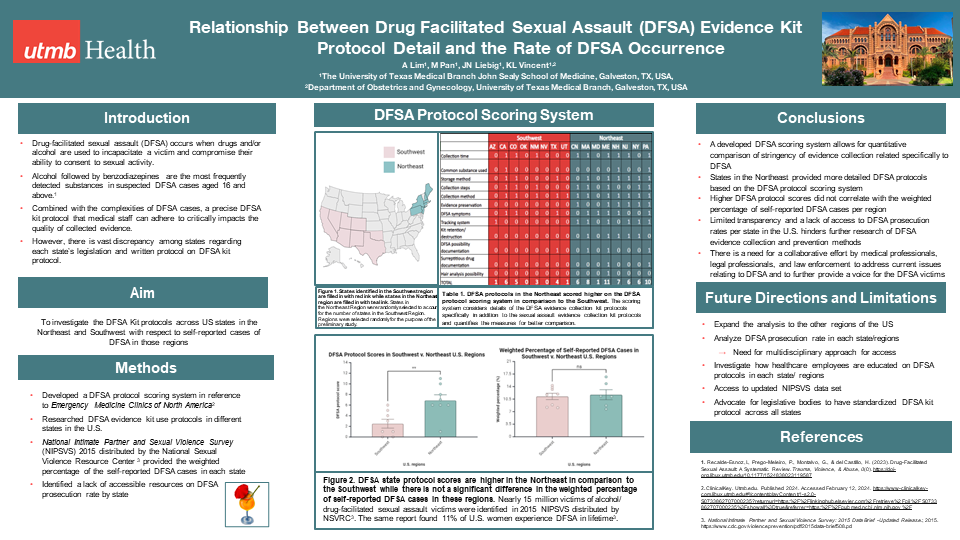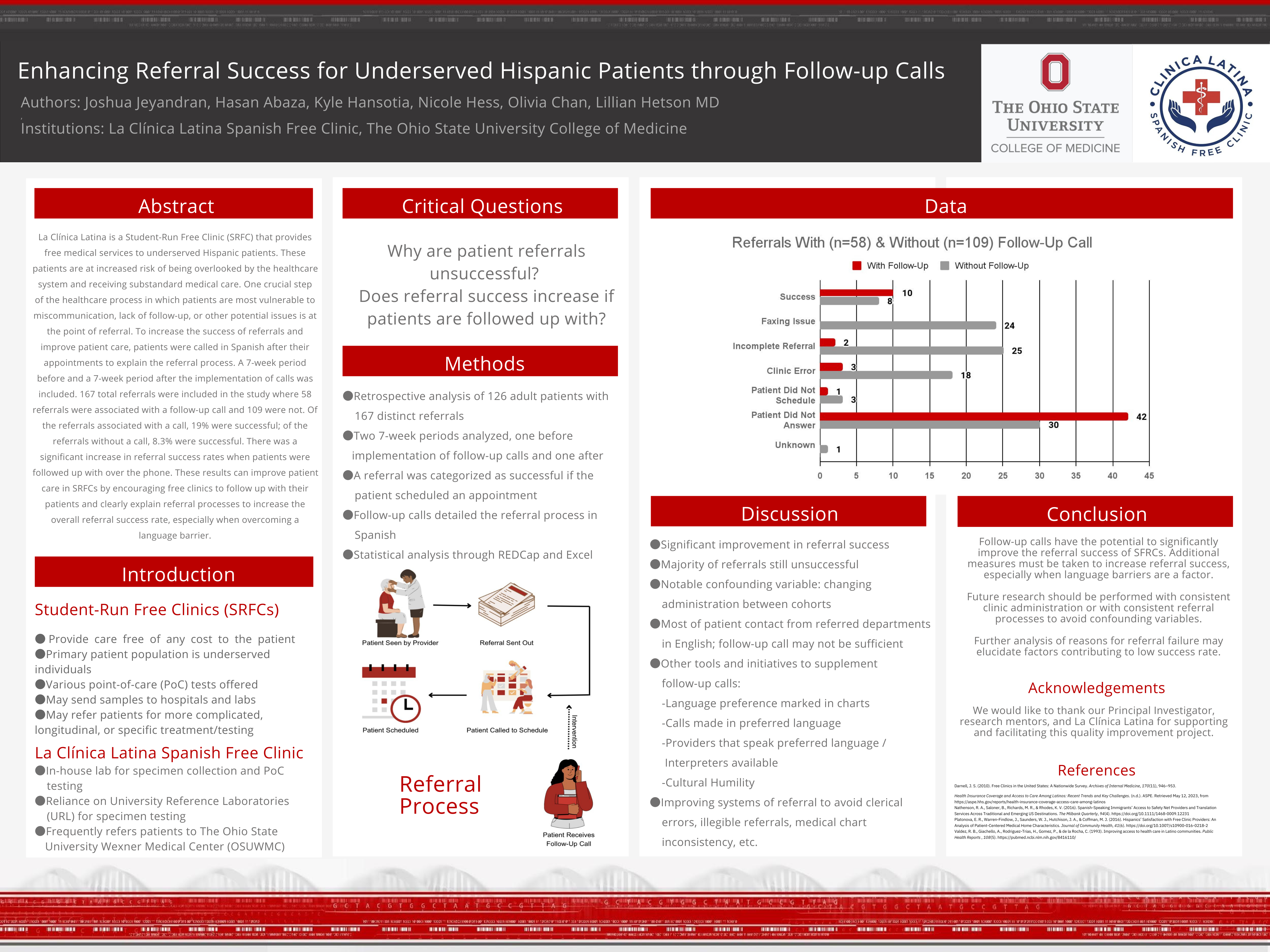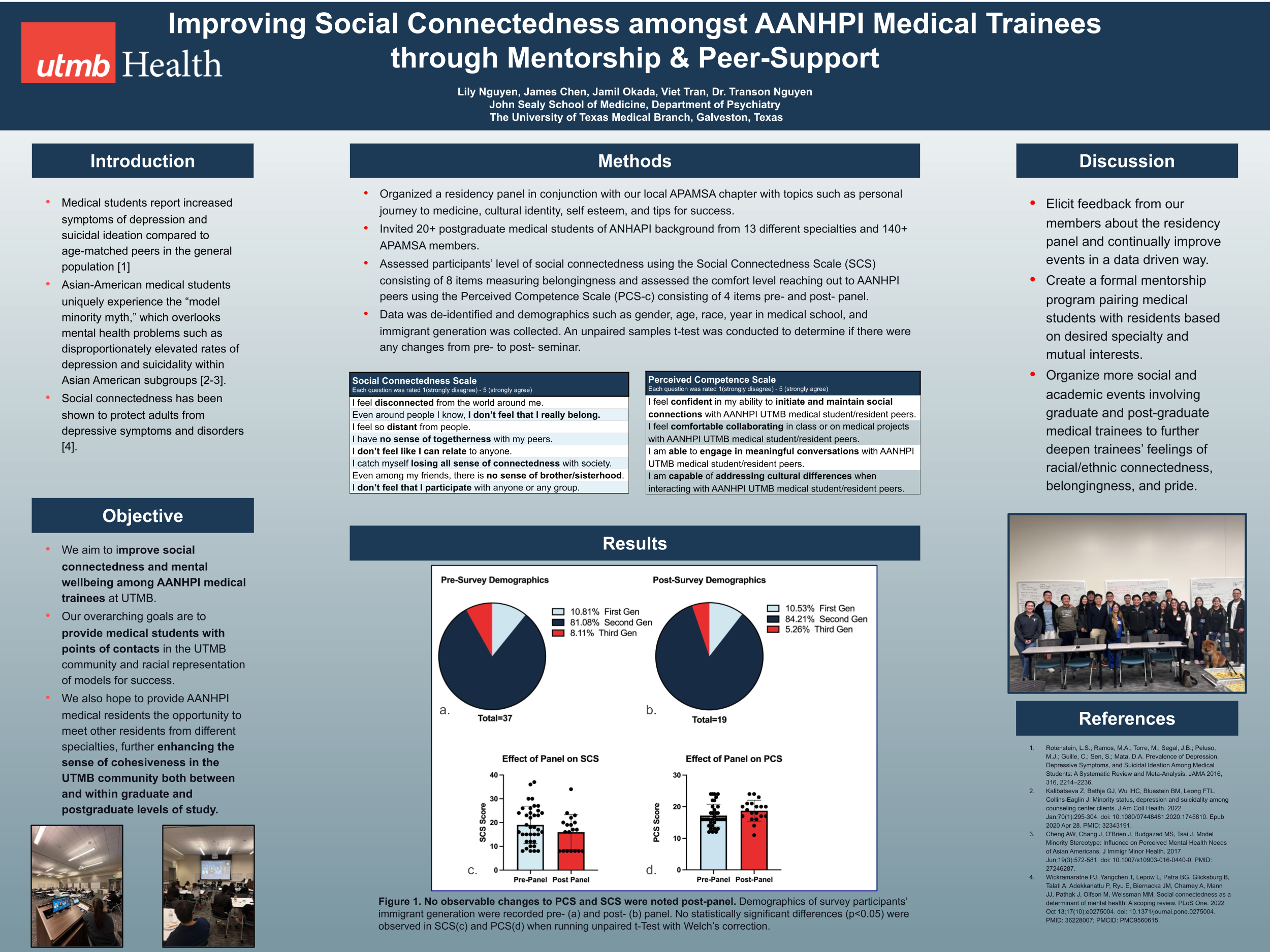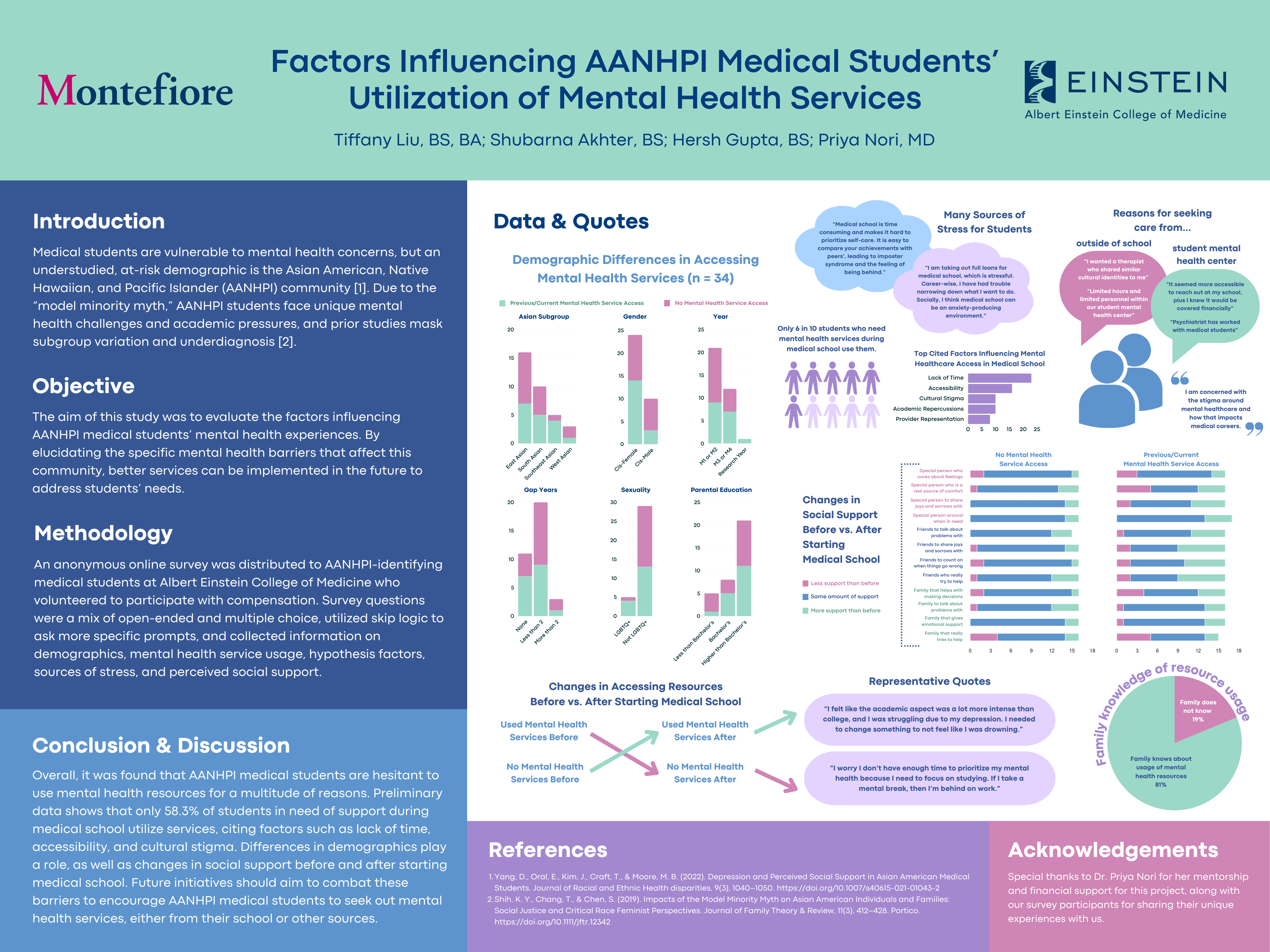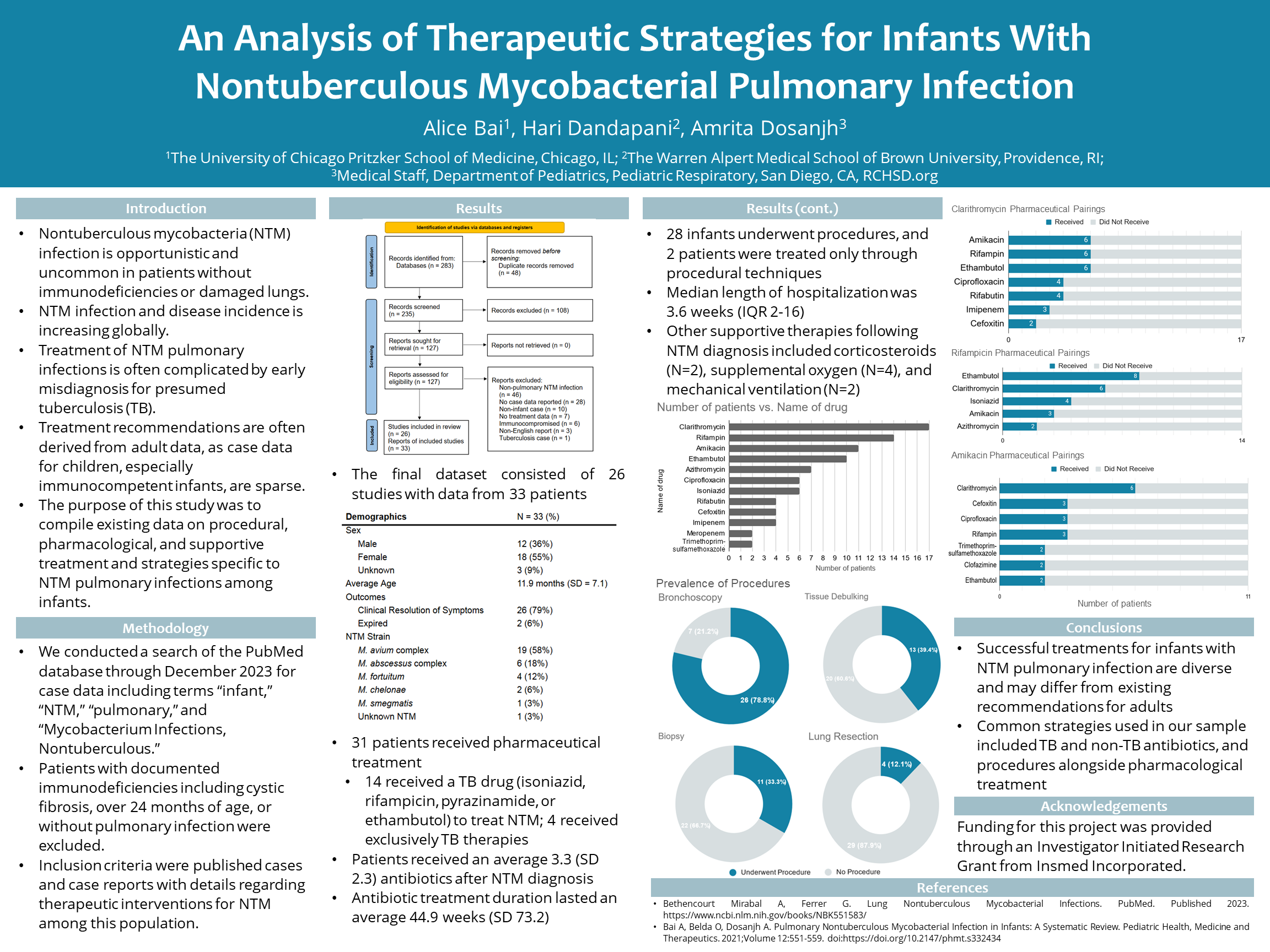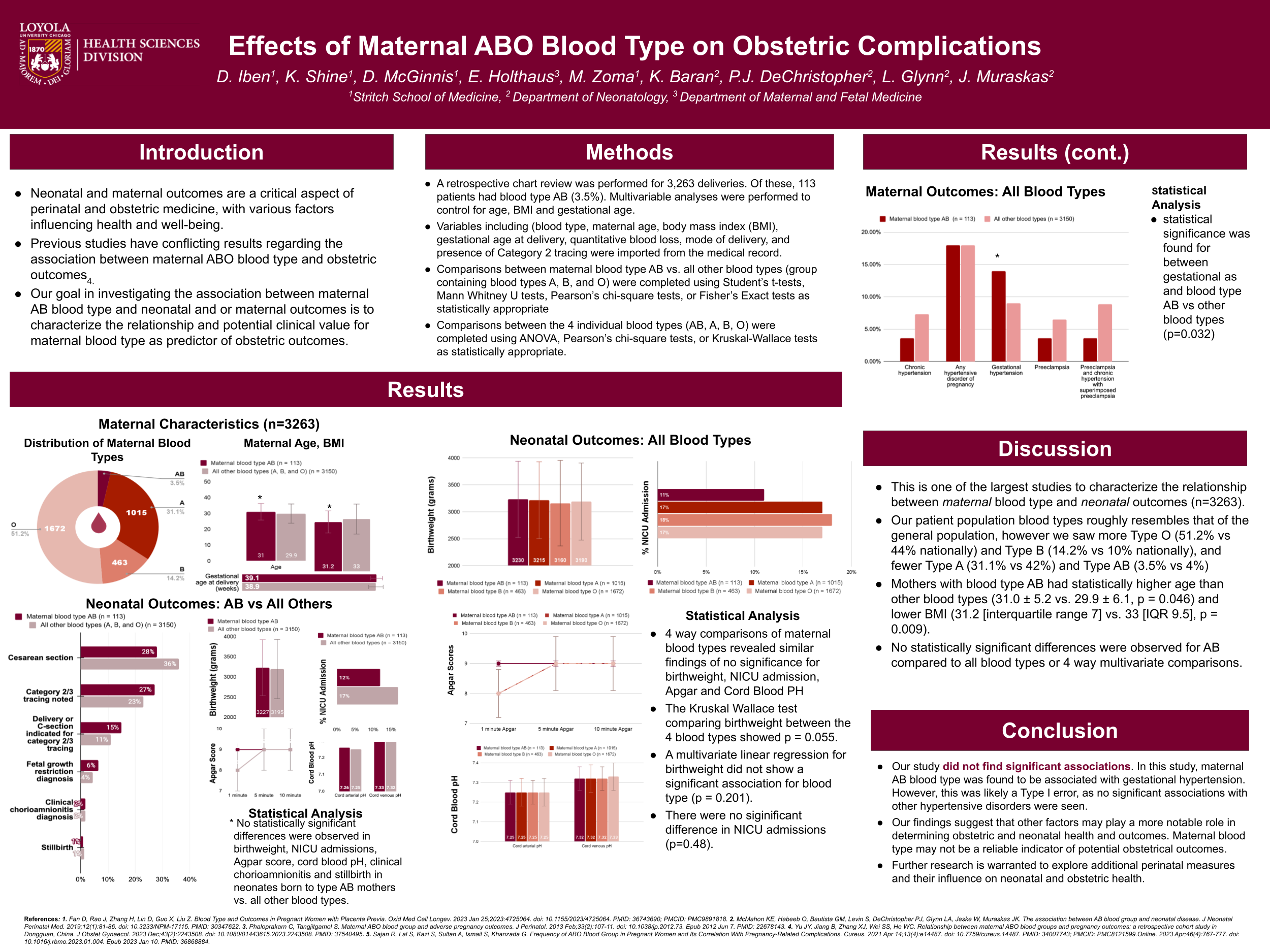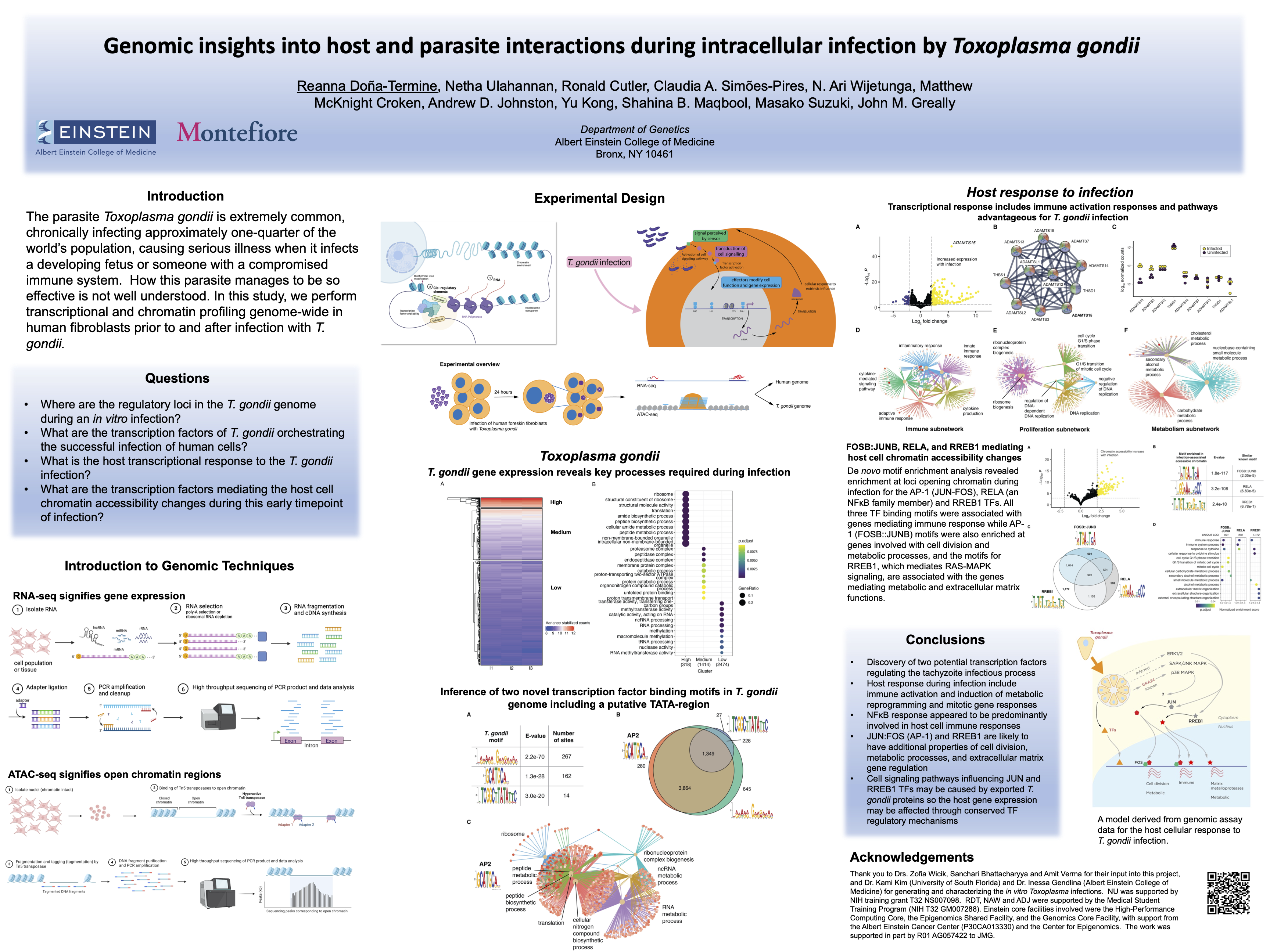Congratulations to all of our 2024 APAMSA Research Award winners!
Interested in featuring your research with APAMSA? Email research@apamsa.org for more information!
Research Award Winners
First Place
Bryan-Clement Tiu:
Pilot Medical Mandarin Summer Course at UC Irvine School of Medicine
Bio:
Whitney Li, Bryan-Clement Tiu, Vicki Wang, and Yuwen Jian are 2nd year medical students at UC Irvine School of Medicine. We started the school’s first student-run flipped-classroom medical mandarin course in the summer of 2023 to cultivate a more linguistically competent physician workforce. The results of this project demonstrates a feasible approach to address language barriers in healthcare through education.
Runner Up
Amin Lim, Madeline Pan:
Comparison of Drug Facilitated Sexual Assault (DFSA) Evidence Kit Protocol Detail and Rate of DFSA Occurence in the Northeast and Southwest Regions of the United States
Bio:
Amin Lim graduated from Wellesley College with a B.A. in Neuroscience. Madeline Pan graduated from Southern Methodist University with a B.S. in Biological Sciences and a B.S. in Health & Society. We are interested in understanding different aspects regarding drug-facilitated sexual assault in the present day to provide healthcare that is better informed and equipped.
Abstract:
Drug-facilitated sexual assault (DFSA) is a highly understudied form of sexual violence impacting nearly 15 million victims (Smith S, Zhang X, Basile K, et al.). Often, the victims of DFSA experience impaired state of consciousness (World Health Organization 2003), making it difficult for victims to advocate for themselves. Combined with the complexities (Prego-Meleiro P.) of DFSA cases, a precise DFSA Kit use by the medical staff critically impacts the quality of collected evidence. A preliminary systemic review of DFSA Kit protocols in the US was performed using a multifactorial grading scale to understand the role DFSA Kit protocol plays in effective prosecution of DFSA cases. We found that northeastern states scored significantly higher on the scale with greater details in instructions while there was a higher number of reported DFSA cases in the southwest region. A continued investigation will provide a better understanding of the current discrepancy in the protocol details across various US regions and their role in DFSA prevention and prosecution.
Third Place
Ivory Rok:
Quality Improvement: Evaluation of Stanford Mental Health for Asians Research and Treatment (SMHART) Clinic
Fourth Place
Joshua Jeyandran, Hasan Abaza:
Enhancing Referral Success for Underserved Hispanic Patients Through Follow-up calls
Bio:
Joshua Jeyandran and Hasan Abaza are third-year undergraduate students at The Ohio State University studying Medical Anthropology and Medical Laboratory Science, respectively. Their project was done in conjunction with La Clínica Latina, an OSU Hispanic free clinic, where they explored how the utilization of follow-up phone calls in Spanish detailing the referral process to patients impacted referral success within the clinic.
Abstract:
La Clínica Latina, a Student-Run Free Clinic (SRFC) aiding underserved Hispanic patients, addresses the heightened risk of healthcare system neglect and substandard medical care for this population. The vulnerable phase of the healthcare process, particularly in referrals, necessitated interventions to mitigate miscommunication and lack of follow-up. This study implemented Spanish-language follow-up calls after appointments, comparing a 7-week period before and after this intervention. Examining 167 referrals, 58 with follow-up calls and 109 without, revealed a significant improvement in success rates. Referrals with calls demonstrated a 19% success rate, while those without had 8.3%. The findings underscore the value of proactive communication, especially in overcoming language barriers, emphasizing the potential to enhance overall patient care in SRFCs. Encouraging free clinics to implement follow-up strategies and clarify referral processes could significantly elevate referral success rates, contributing to improved healthcare outcomes, particularly for populations facing linguistic and sociocultural barriers.
Fifth Place
Johnny T. Dang:
Reviewing and Discussing the Pivotal Role of Anesthesiologists on the Perioperative Care Teams of Transgender Patients Undergoing Gender Affirming Surgery
Bio:
My name is Johnny Dang, and I am a second-year medical student at the University of Texas Medical Branch John Sealy School of Medicine currently interested in Anesthesia. This past year, I had the great opportunity of serving my school’s APAMSA chapter as Diversity and Inclusion Officer while also serving on the National APAMSA LGBTQIA+ Committee as a member. My literature review abstract at this year’s national conference looked at the role of anesthesiologists on the perioperative care teams of transgender patients, specifically covering current knowledge of perioperative concerns, emerging care transgender surgical care team models, and future research collaboratives addressing the lack of literature on transgender intraoperative care standards.
Abstract:
Gender affirming care for transgender patients spans medical therapy to psychosocial support, which all must be considered by anesthesiologists once these patients enter the perioperative care space for gender affirming surgery. What role do anesthesiologists play on the multidisciplinary care team and how well equipped are they in achieving holistic, sensitive care of transitioning patients? 17 out of 24 articles were identified relevant to this topic via PubMed search and categorized under 3 learning objectives: Current Perioperative Concerns, Current Organizational Infrastructure of Care Teams, and Anesthesia Provider Confidence with Transgender Patients. Following review and discussion, it can be concluded that future efforts should focus on conducting community based research projects to log procedural information in hopes of establishing standard fluid management protocol for nonbinary transitioning patients, adopting standard algorithms of care amongst the multidisciplinary team and within the anesthesia team itself, and increasing LGBTQ+ training and visibility within pediatric anesthesia.
First Place
Tiffany Liu, Shubarna Akhter, Hersh Gupta:
Factors Influencing AANHPI Medical Students’ Utilization of Mental Health Services
Bio:
Tiffany Liu, Shubarna Akhter, and Hersh Gupta currently attend medical school at Albert Einstein College of Medicine. They were inspired by their personal experiences to develop this project centered around mental health service utilization by AANHPI medical students. In the future, they plan to expand the scope of this study within their institution and to other medical schools, with the ultimate goal of implementing changes informed by their research findings to improve access to resources.
Abstract:
Medical students are vulnerable to mental health concerns, but an understudied, at-risk demographic is the Asian American, Native Hawaiian, and Pacific Islander (AANHPI) community. Due to the “model minority myth,” AANHPI students face unique mental health challenges and academic pressures, and prior studies mask subgroup variation and underdiagnosis. Therefore, we aim to evaluate factors influencing AANHPI mental health and utilization of mental health services. We distributed an anonymous online survey to AANHPI-identifying medical students who volunteered to participate with compensation for participation. Survey questions were a mix of open-ended and multiple choice, utilized skip logic to ask more specific prompts, and were in five sections: demographics, mental health service usage, hypothesis factors, sources of stress, and perceived social support. Data analysis was performed in Python/R and included descriptive statistics and correlations. Qualitative analysis was completed by thematic coding of responses.
Runner Up
James Chen:
Improving Social Connectedness Amongst AAPI Medical Trainees Through Culturally-Aligned Mentorship and Peer-support
First Place
Alice Bai:
Review of Treatment Pathways for Infants with Nontuberculous Mycobacterial Pulmonary Infection
Bio:
Alice Bai is a medical student at the University of Chicago Pritzker School of Medicine. Her poster presentation aggregated treatment data from case reports involving infants with pulmonary infections caused by nontuberculous mycobacteria (NTM). This project aims to lay the groundwork for assessing commonly utilized treatment strategies for pulmonary NTM in an infant population.
Abstract:
Case data on surgical, pharmaceutical, and other treatment strategies for nontuberculous mycobacterial (NTM) pulmonary infections in immunocompetent infants is sparse.We conducted a search of the PubMed database through December 2023 for case data including terms “infant,” “NTM,” “pulmonary,” and “Mycobacterium Infections, Nontuberculous.” Patients with immunodeficiencies, over 24 months of age, or without pulmonary infection excluded. Among 33 patients, 26 achieved clinical resolution of infection, and 2 expired. 31 patients received pharmaceutical treatment, including 14 who received a TB drug (isoniazid, rifampicin, pyrazinamide, or ethambutol) following NTM diagnosis. 18 infants underwent surgical procedures, including 13 for tissue debulking and 4 for lung resection. Median length of hospitalization was 3.6 weeks (IQR 2-16), and 4 patients required supplemental oxygen and 2 required mechanical ventilation while admitted.Successful treatment pathways for infants with NTM pulmonary infection are diverse and may differ from existing recommendations for adults.
Runner Up
Danielle Iben:
Effects of Maternal ABO Blood Type on Obstetric Complications
Bio:
D. Genevieve Iben is a second year medical student at Stritch School of Medicine interested in the field of neonatology and obstetrics. Her retrospective chart review investigated whether maternal blood type directly correlated with adverse obstetric outcomes. This study contradicted previous findings, suggesting blood type might not be a primary determinant of obstetric or neonatal health, potentially guiding future clinical practices in maternal and neonatal care.
Abstract:
Previous studies displayed varied outcomes regarding the effect of maternal blood type on obstetric and neonatal conditions due to smaller sample sizes. This retrospective chart review, encompassing 3,263 deliveries, investigated if maternal blood type directly correlated with adverse obstetric outcomes. Our data included 113 moms with blood type AB (3.5%). Data encompassed factors like maternal age, BMI, and gestational age. Analyzing these factors, no significant links were found between blood type AB and severe conditions like preeclampsia or eclampsia. However, gestational hypertension had a significant association with blood type AB. No notable disparities were observed in neonatal outcomes for maternal blood type AB versus others. This study contradicts previous findings, suggesting blood type might not be a primary determinant of obstetric or neonatal health. Physicians shouldn’t solely rely on blood type as an indicator of high-risk pregnancies. Additional research is necessary to explore diverse perinatal factors affecting neonatal health.
Reanna Dona-Termine:
Genomic insights into host and parasite interactions during intracellular infection by Toxoplasma gondii
Bio:
Reanna Doña-Termine is an 8th year MD/PhD candidate at Albert Einstein College of Medicine in the Bronx, New York and completed this project studying host and parasite genomic responses in 2022. This study investigated the early infection of Toxoplasma gondii on an in vitro model resulting in interesting findings that captured a potential underlying cause of the efficacious parasitic infection. We contributed to the field of Toxoplasma by providing novel putative transcription factor binding sites and discovered the host transcriptional response involved immune, proliferative and metabolic responses to the infection.
Abstract:
To gain insights into the molecular interactions of an intracellular pathogen and its host cell, we studied gene expression and chromatin states of human fibroblasts infected with Toxoplasma gondii. We show a striking activation of host cell genes, some of which are protective, others likely to be advantageous to the pathogen. The simultaneous capture of host and parasite genomic information allowed us to better understand the regulation of the T. gondii genome. We show how chromatin accessibility and transcriptional profiling together permit novel annotation of the parasite’s genome, including more accurate mapping of known genes and identification of new genes and cis-regulatory elements. Our model builds on previously-described human cell signalling responses to T. gondii infection, linked to induction of specific transcription factors, some of which appear to be solely protective of the host cell, others of which appear to be co-opted by the pathogen to enhance its own survival.
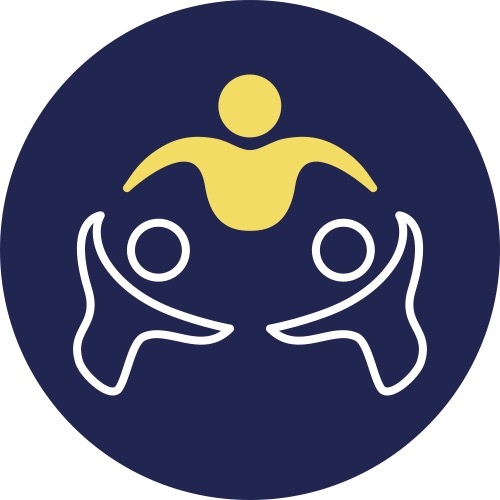
Congratulations to our 2024 National Conference Research Poster Awardees!
Be sure to stay tuned for more opportunities to feature your research at upcoming regional and national conferences.
